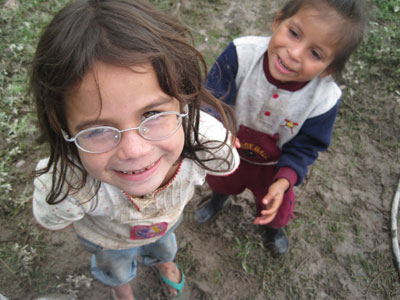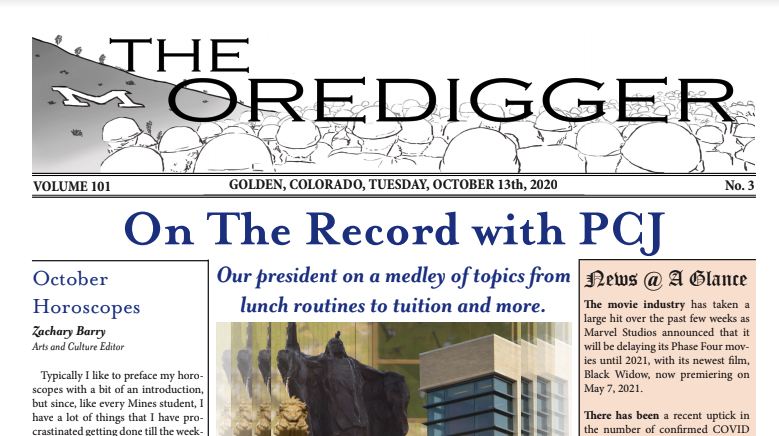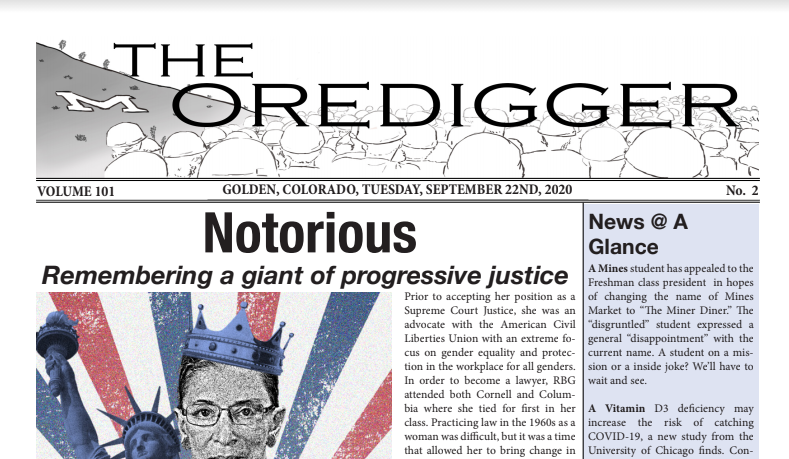{gallery}1112/i13/honduras{/gallery}
“Some people are living to enjoy life. These people are living to survive.” These words greeted a group of Mines students studying rural development in northwestern Honduras not two weeks ago. While most other students enjoyed the last week of their winter break, these students experienced poverty in Central America and returned home having learned both tangible skills and important life lessons, just before their Spring semester classes would begin.
Physics professor Ed Cecil and his wife Meridee have gone on a number of humanitarian trips in the last 10 years. After three years of taking Mines students to the Mexican village of Las Varas through Habitat for Humanity, they continued traveling for service and visited Honduras in 2010 with their church. Shortly after that, Cecil said, “These trips were such great experiences that when we came back, we said ‘we have to do this again next year and bring a bunch of Mines students'”. Ed and Meridee’s most recent humanitarian expeditions have been through Heifer International. In January of both 2011 and 2012, they traveled to the village of Cerro Azul in Trinidad, Honduras with a group of Mines students and faculty.
Heifer International gives animals to poor communities in third world countries. Giving a pregnant cow to a poor family does not solve any problems, though, and Heifer recognizes this. Heifer offers help to communities in the form of training in being self-sustainable, housing, livestock and disaster rehabilitation efforts. Heifer states, “By giving families a hand-up, not just a hand-out, we empower them to turn lives of hunger and poverty into self-reliance and hope.”
During their time in Cerro Azul, the groups work to provide housing for the entire village. In 2011, they constructed three-room homes of cement blocks. When last year’s group arrived, the village was a bare hill with one home and a stately fig tree right in the middle. When this year’s group arrived, all the houses were complete, and the group laid cement floors and built beds, tables, and other furniture for the homes.
In addition to their labor at the worksite, the groups learned about the source of poverty and sustainable development in rural communities. Over the course of the semester prior to the trip, the groups met and discussed successful and failed sustainability projects. While in Honduras, they also heard talks by the mayor of Trinidad, their guide, Gloria, and her sister Norma, both of whom work with NGOs to better communities in Honduras.
Tim and Gloria Wheeler work with Heifer volunteer groups throughout the year and personally work with each village to help them build a foundation of trust, sharing, cooperation and community. They not only facilitate the physical work that’s being done, but also help the communities develop so that they can overcome any difficulties on their own, after the organization moves to a new village. It is necessary for these people to get help, but even more important that they learn to be self-sustainable, so that after Heifer leaves their community, they continue prosper on their own.
Lupe Monge Fabian, a student from this year’s group said of what Tim and Gloria do for the people of Honduras, “They help these communities become sustainable and teach them to dream. They teach them how to be confident and be proud of who they are and teach them how to share, help each other and grow as a community”. Another student, Skylar Huzyk, when asked about the greater reason behind the trip, “We did not come down to build houses- we came down to learn, and to help instill a stronger feeling of hope, pride and self-worth in people who have been trampled by their society for generations.”
Cecil believes that trips like this are incredible learning opportunity for Mines students. “This experience is so beneficial to students since it gets them to another part of the world and immerses them in a fairly foreign, often quite impoverished culture. So many of the students come away with an appreciation of how good we have it here and how important it is to use our science and engineering to try to improve the world as a whole” said Cecil.
Huzyk also spoke positively of the recent trip to Cerro Azul. “It is an eye-opening experience for us to work in a developing country with people who have only recently begun to own land, who have hardly any educational opportunities, and who are just beginning to pull themselves out of abject poverty”, she said.
Among many of the ways to get involved with Heifer, the organization offers “study tours”, like this one, in 17 different countries around the globe. The Humanitarian department at Mines offers a variety of programs including an area of special interest and minors in both Humanitarian Engineering and Humanitarian Studies and Technology. Huzyk believes there is always a need for students with technical educations to apply their knowledge in a way that benefits the world. “This trip to Honduras underscores the global need for technical and human solutions to basic human needs, while at the same time showing students that they truly can make a difference, even if on a small scale”, Huzyk said.
For more information about the trip, contact Ed Cecil or for information about other Humanitarian programs, go to humanitarian.mines.edu.




'Mines students learn about service and sustainability abroad' has no comments
Be the first to comment this post!